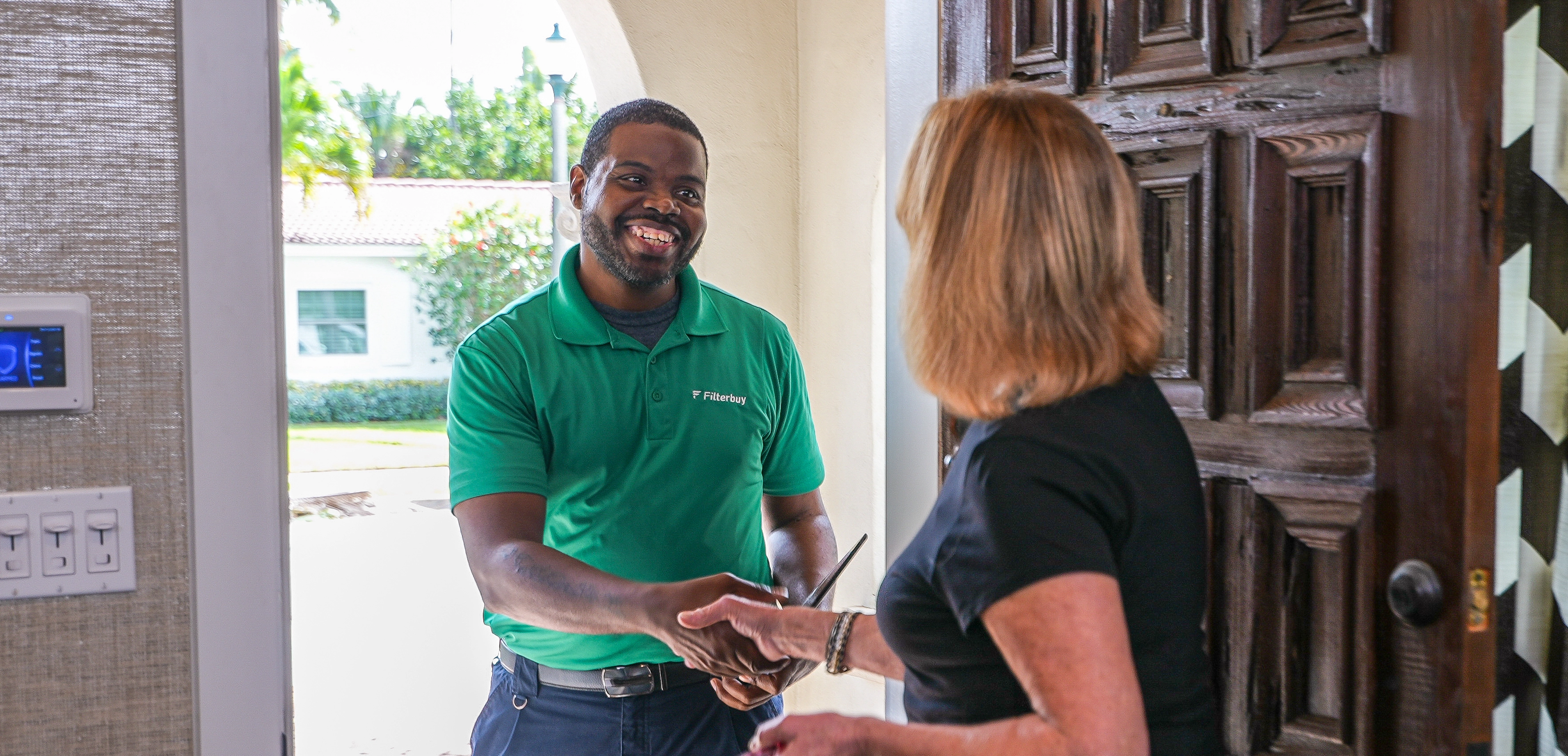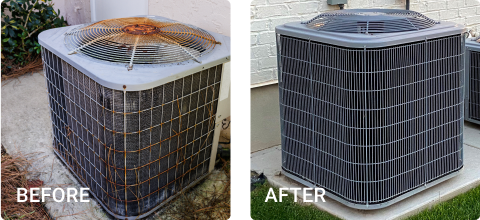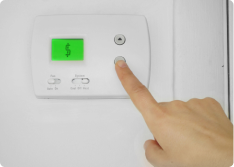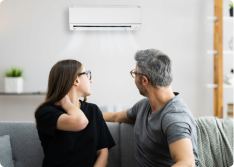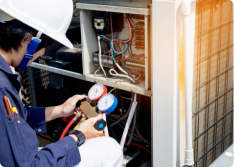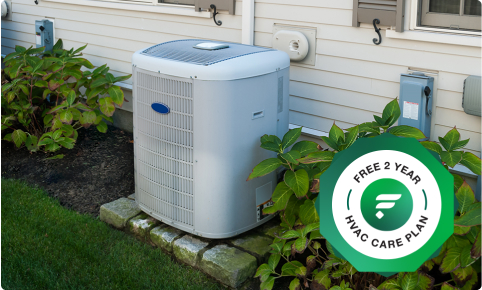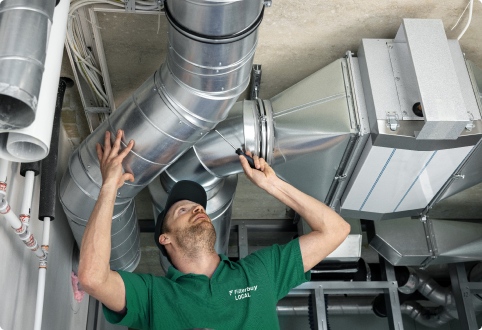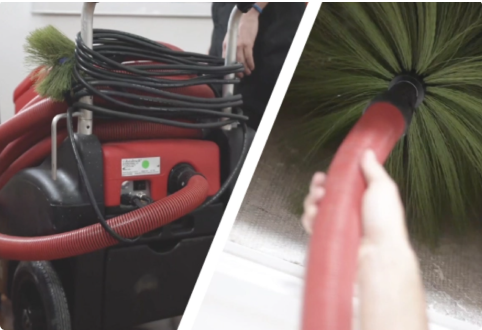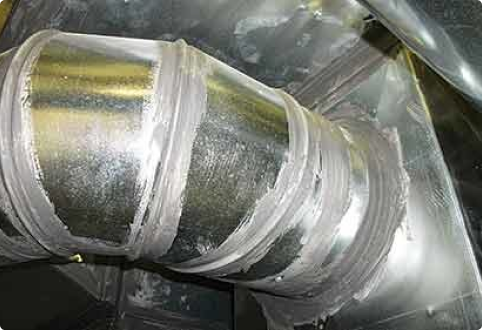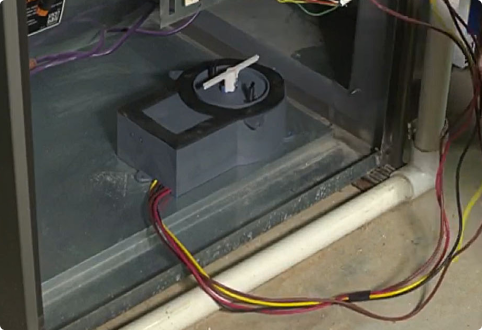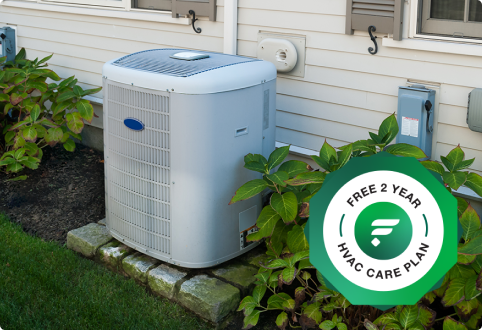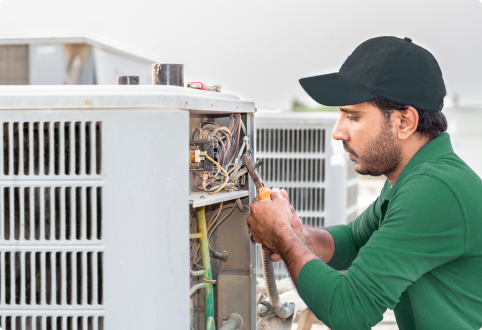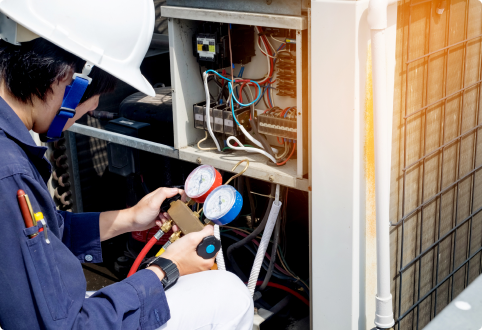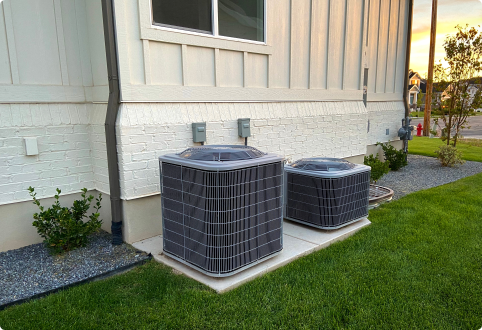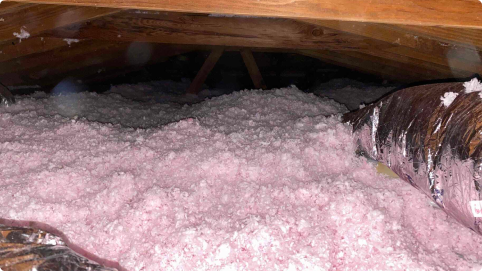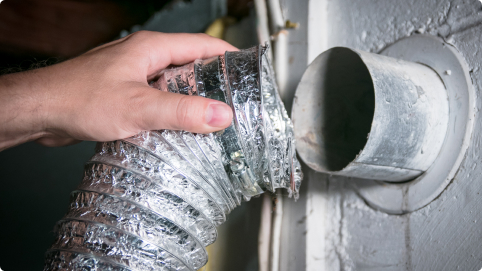Welcome to Filterbuy HVAC Solutions, the best HVAC system replacement service company proudly serving in and near the greater West Palm Beach, FL area. Please let us know how we can help solve your West Palm Beach HVAC system replacement needs with professional, affordable, and fast residential and commercial HVAC services by getting a free online quote or by giving our friendly HVAC specialists a call. We look forward to hearing from you!
HVAC Replacement Services West Palm Beach FL
HVAC replacement services in West Palm Beach, Florida are an important part of keeping homes and businesses comfortable and efficient. Keeping up-to-date with the latest HVAC technology can be a challenge for property owners due to the cost involved as well as finding qualified professionals who can properly install new systems. This article will provide information on why it’s important to replace outdated HVAC systems, what types of equipment are available, and how to find qualified professionals that offer these services.
The average lifespan of an air conditioning unit is around 10 years when properly maintained. After this period has passed, homeowners should consider replacing their system with a more energy-efficient model that meets current industry standards. By using modern technologies such as variable-speed motors or two-stage compressors, people may experience decreased utility bills while also being able to enjoy better indoor air quality. In addition, newer models usually come fitted with programmable thermostats which allow users to conveniently set temperatures for different times throughout the day depending on their needs.
When searching for experienced technicians offering HVAC replacement services in West Palm Beach, home and business owners should seek out those who have proper training and certification from reliable sources like North American Technician Excellence (NATE). It is also important to ensure any potential contractor carries liability insurance so that they are covered if something goes wrong during installation or repair work. With the right research, residents can confidently select a professional who offers safe and reliable service at competitive prices.
Definition Of HVAC Systems
Heating, ventilation, and air conditioning (HVAC) systems are an integral part of any home or business. These systems provide thermal comfort by maintaining the indoor temperature at a level that is comfortable for people. They also ensure adequate airflow and humidity control to keep occupants healthy and productive. HVAC systems use mechanical components such as fans and motors, along with a network of ducts to distribute conditioned air throughout the space. In addition, these systems often contain filters that remove airborne particles from the incoming air stream to improve indoor air quality.
The efficiency of an HVAC system depends on several factors including size, design, operation, maintenance, and installation practices. Proper sizing ensures that there is enough capacity to maintain desired temperatures without overworking the equipment. Design must consider local climate conditions, building materials used in construction, type of insulation installed in walls and roofs, windows’ sizes, and orientation among other features. The operation should take into account seasonal weather changes as well as occupancy patterns to maximize energy savings while ensuring sufficient cooling or heating capabilities when needed. Regular maintenance prevents dirt buildup within the system which can cause it to work harder than necessary leading to higher energy bills and early failure of some components whereas correct installation practices guarantee proper integration between all elements of the system resulting in optimal performance levels over time.
In short, HVAC systems play an important role not only in providing thermal comfort but also in creating healthier environments inside buildings due to their ability to filter out many pollutants present in outdoor air streams before they reach occupied spaces. As such they have become essential elements for both residential homes and commercial establishments alike. This section has provided an overview of what HVAC systems are composed of as well as how their effectiveness can be maximized through proper design principles implementation during installation processes coupled with regular maintenance routines afterward – paving the way for our next topic about advantages associated with replacing old units with new ones.
Advantages Of Replacing Old Systems
The advantages of replacing old HVAC systems are well documented. Replacing an aging system can reduce energy costs, improve indoor air quality, and increase the lifespan of a home’s heating and cooling system. A new system is more efficient than an older model, meaning it consumes less electricity to produce the same amount of heat or cool air. This efficiency results in lower monthly utility bills for homeowners throughout West Palm Beach FL. Furthermore, newer models often come with filters that help improve the quality of the air circulating through a house by removing particles like pollen, dust mites, and pet dander from the atmosphere. Finally, installing a new unit assures that it will operate reliably for many years to come as long as it receives regular maintenance service. By upgrading one's current HVAC system, homeowners in West Palm Beach FL may be able to enjoy these benefits without compromising their budget due to cost considerations.
Cost Considerations
When it comes to getting an HVAC replacement in West Palm Beach, FL, the cost is a major consideration. Understanding the costs associated with such a project can help ensure that homeowners have a complete picture of what they are getting themselves into. To get a better understanding of these costs, there are several factors to consider.
The first factor to take into account when budgeting for an HVAC replacement is the size and complexity of the system being installed. Larger systems will require more installation time and materials than smaller ones, which will cause the overall price tag to be higher. In addition, complex systems may also need specialized parts or labor, further driving up the total cost of installation. Homeowners need to speak with their contractors about all potential variables that could affect their final bill before signing any agreements.
Another important factor affecting HVAC replacement costs is energy efficiency ratings. Systems with higher efficiency ratings often come at a premium due to their improved performance capabilities; however, they typically result in lower long-term utility bills so this initial investment might pay off over time. Homeowners should carefully consider whether investing in a high-efficiency system now would save them money down the line by reducing their monthly energy expenses.
As anyone considering an HVAC replacement knows, numerous factors go into determining how much it will cost - from the size and complexity of the system itself to its energy efficiency rating - but armed with some knowledge on these topics, homeowners can make informed decisions regarding their purchase without feeling overwhelmed by sticker shock. Taking into account both upfront and long-term considerations helps create an accurate picture of what kind of system best fits within one’s budget while still providing quality results for years to come.
Factors To Consider When Choosing A System
When it comes to replacing an HVAC system, many factors need to be taken into consideration. The size of the unit and its energy efficiency rating are two components that should not be overlooked when selecting a new system. Additionally, understanding the warranty details associated with the particular model being purchased is also important to ensure long-term satisfaction with the product.
The cost of the replacement unit will depend on several variables such as brand, size, and features included. It is advised to compare prices between different vendors before making a final decision. Additionally, taking advantage of available rebates or special promotions can reduce the overall cost of purchase. In certain cases, some companies may offer financing options for those who qualify to help cover the expense upfront.
Finally, ensuring quality installation services is paramount for both safety reasons and the optimal performance of a newly installed HVAC system. A qualified professional should assess any existing ductwork and recommend any necessary adjustments before beginning work on the actual installation process. Furthermore, inquiring about their experience level in dealing with similar projects can provide peace of mind during this critical stage of the project. With these points in mind, homeowners can rest assured they have made an informed choice when deciding upon an HVAC replacement service provider in West Palm Beach FL. Quality of installation services should now be considered as part of making sure that all aspects related to an HVAC replacement project come together seamlessly.
Quality Of Installation Services
Installing a new HVAC system is like building a house. The work must be done perfectly, with no mistakes or oversights that could lead to serious issues down the road. When hiring an HVAC replacement service in West Palm Beach, FL, it's important to ensure they use quality parts and follow industry-standard procedures during installation.
The first step of any installation job is proper sizing - if the unit isn't sized correctly, it won't perform efficiently. Professional HVAC technicians can assess your home and determine what size system you need for optimal performance. They also know how to install systems safely and securely within existing systems, ensuring all components fit together properly with minimal disruption to the rest of your home's infrastructure.
Additionally, professional technicians check for air leaks and correct insulation levels before installing a new system. This helps reduce energy costs over time by eliminating drafts and other sources of heat loss from your home. With these steps taken care of, you can trust that your newly installed HVAC system will run as intended for years to come without costly repairs or interruptions due to improper installation techniques.
By taking advantage of professional installation services from an experienced provider in West Palm Beach, FL, homeowners can have peace of mind knowing their investment will pay off in terms of comfort and efficiency for many years into the future.
The Benefits Of Professional Installation Services
Adequately installing a new HVAC system is an involved process that requires technical knowledge and skill. Professional installation services can provide a range of benefits for homeowners in West Palm Beach, FL. Firstly, working with experienced installers assures that the job will be done correctly from start to finish. Not only do professionals have the necessary expertise and experience to complete the work properly; but they also know how to calibrate and adjust the equipment according to the manufacturer’s specifications. Secondly, hiring licensed contractors ensures that all safety requirements are met and local building codes are adhered to during the installation of the unit. This helps reduce any potential risks associated with improper setup or operation of the HVAC system. Lastly, professional installation services may provide additional support such as warranty coverage on parts and labor, which can save money if repairs are needed down the line.
It is important to understand what kinds of technologies exist so that one can make an informed decision when selecting an appropriate system for their home.
Different Types Of HVAC Systems Available In West Palm Beach FL
When it comes to HVAC replacement services in West Palm Beach, FL, homeowners have a variety of systems from which to choose. An anachronism - installing the wrong system can be costly and inefficient - makes this decision all the more important. These are three types of HVAC systems typically available:
1. Split Systems: A split system is composed of two units that each serve one purpose: cooling or heating. The condenser unit (which cools) is installed outdoors, while the air handler (which heats) is placed indoors. This setup allows for maximum efficiency as temperatures vary indoors and out.
2. Packaged Units: As its name implies, this type of HVAC contains everything within one self-contained unit located outside the home's exterior wall. It is thus able to provide both cooling and heating functions without requiring multiple separate components like those found with a split system.
3. Heat Pumps: Heat pumps are similar to packaged units but operate on electricity rather than gas, meaning they offer a greener alternative for climate control in certain climates. In addition to providing year-round comfort through temperature regulation, heat pumps also help reduce energy costs due to their efficient operation when compared to other types of HVAC systems.
This level of choice allows residents in West Palm Beach to take advantage of modern technology tailored specifically to their environment and needs. With careful consideration given to size requirements, installation ease, energy efficiency ratings, and cost factors, selecting the right HVAC system will ensure many years of reliable service and satisfaction at home.
Maintenance Requirements For New HVAC Systems
When selecting a new HVAC system for your home or business, it is important to consider the maintenance requirements associated with each type of system. Different types of systems require different levels of upkeep and repair for them to run efficiently and safely. This table provides an overview of some common maintenance tasks that should be performed on newly installed HVAC systems:
It is also important to schedule regular inspections and tune-ups by a qualified professional to ensure all components are working properly and that any potential problems can be identified before they become major issues. Additionally, having timely repairs done when necessary will help keep your system running at optimal efficiency, which can lead to lower energy costs over time. An effective preventative maintenance program can save you money in the long run while ensuring maximum performance from your new HVAC system. Without proper care and maintenance, even the best equipment may not perform optimally or last as long as expected.
Energy Efficiency Ratings For Different Models
Energy efficiency ratings are an important factor to consider when selecting a new HVAC system. The two main measures of energy efficiency for residential air conditioners and furnaces are the seasonal energy efficiency ratio (SEER) and annual fuel utilization efficiency (AFUE). A higher SEER rating indicates that the unit can cool more efficiently, while a higher AFUE rating indicates that it will heat more efficiently.
When shopping for a new HVAC system, homeowners should look for models with high-efficiency ratings to maximize savings on monthly utility bills. High-efficiency systems may cost more upfront but can save hundreds or even thousands of dollars over the life of the unit due to lower operating costs. Additionally, some manufacturers offer rebates or tax credits for purchasing energy-efficient models which also helps offset installation costs.
The Environmental Protection Agency's Energy Star program provides a simple way to compare different systems based on their energy efficiency ratings. It offers consumers access to detailed information about various brands and models as well as helpful tips on how they can improve their home’s performance through better insulation and other techniques. As such, this resource enables informed decision-making when choosing the best option for one’s budget and needs.
Warranties And Guarantees
HVAC replacement services in West Palm Beach, FL offer warranties and guarantees to ensure the satisfaction of their customers. These assurances can provide peace of mind for those who have invested a significant amount of money into these projects.
When researching potential HVAC replacement companies, it is important to review any associated warranties or guarantees that come with their service. This includes both parts and labor coverage as well as other components such as:
* A stipulated time frame on how long the warranty lasts
* The ability to transfer the warranty if necessary
* Any additional fees associated with claiming the warranty
It is also beneficial to determine what type of support they provide after the installation has been completed so you know who to contact should any issues arise in the future. Checking customer reviews and speaking directly with past clients may help uncover this information before committing to an HVAC replacement company in West Palm Beach, FL.
Frequently Asked Questions
How Often Should I Have My HVAC System Serviced?
Having a properly functioning HVAC system is essential to ensure the air quality inside your home or commercial building remains healthy. Like any piece of machinery, regular maintenance and servicing of your HVAC system are key for its longevity and efficiency. So, how often should you have your HVAC system serviced?
To answer this question, consider the following:
* The age of the unit – Older units may need more frequent service than newer ones.
* The type of environment - If in a dusty area, additional check-ups may be necessary.
* The amount of usage - More frequent use can put a higher strain on the unit requiring extra attention.
* Any recent repairs - Additional service might be required if recently repaired components were installed.
* Seasonal changes - Depending on where you live, seasonal humidity levels could require extra servicing too.
When it comes to deciding how frequently one should get their HVAC serviced, there isn't necessarily an exact science that applies across all situations; instead, it's important to review each case individually with the guidance of a professional technician who has performed an inspection. Generally speaking though, having annual check-ups is usually recommended as it will allow for early identification of potential issues before they become bigger problems down the line. Additionally, keeping up with these services promotes better energy efficiency which can help reduce costs over time.
Overall, taking care of your HVAC system through regular inspections and maintenance can go a long way towards extending its life and helping keep energy bills low by optimizing performance levels. An ounce of prevention does go a long way when it comes to protecting your comfort and safety at home!
How Can I Make Sure I'm Getting The Best Price For A New HVAC System?
When investing in a new HVAC system, it is important to take the time and effort to ensure that one gets the best price for their money. This will involve researching and comparing different vendors, as well as determining which systems are most suitable for individual needs. Therefore, there are several steps one can take when looking to purchase an HVAC system at the lowest possible cost.
Firstly, research should be conducted on local suppliers to find out what prices they offer and any discounts or promotions available. Additionally, online retailers may have lower rates than brick-and-mortar stores due to the lack of overhead costs associated with running a physical store. It is also worth considering purchasing second-hand components from reputable companies instead of brand-new items if budget is an issue. Furthermore, some manufacturers offer incentives such as rebates or free installation services to attract customers.
Secondly, potential buyers should make sure that they understand all features included in each package so that they can compare apples with apples when making comparisons between various products offered by different merchants. They should also look into energy efficiency ratings before deciding which model to buy since this could result in significant savings over time through reduced energy consumption levels and utility bills. Finally, warranties are another factor that must not be overlooked as longer duration guarantees tend to provide greater peace of mind when dealing with expensive purchases such as these.
In summary, taking the necessary care to make sure one obtains the best price for a new HVAC system involves doing thorough research on local suppliers and online retailers; understanding all features included in packages; paying attention to energy efficiency ratings; and analyzing warranty lengths provided by manufacturers. Taking these measures can prove hugely beneficial in terms of both short-term financial gains and long-term satisfaction with the product purchased.
Are There Any Tax Incentives For Replacing My Old HVAC System?
Replacing an old HVAC system can be costly, but there are a variety of incentives available to those looking for tax relief. Incentives vary from state to state, and homeowners need to understand what sort of tax benefits they may qualify for when considering the replacement of their old HVAC systems.
The Internal Revenue Service (IRS) offers two major types of tax credits that apply to energy-efficient heating and cooling equipment. The first type is known as the Nonbusiness Energy Property Credit, which applies to purchases made in 2018 or later. This credit allows taxpayers to receive up to 10 percent back on certain qualifying home improvements such as insulation material and water heaters. Additionally, the Residential Energy Efficiency Property Credit provides a 30 percent incentive towards renewable energy installations such as solar electric property and geothermal heat pumps.
It should also be noted that some states have additional programs offering more generous financial assistance than federal initiatives do. For example, Florida offers grants under its Solar/Air Source Heat Pump Program designed specifically for residential customers who wish to install either solar panels or air source heat pumps to reduce their monthly electricity bills. Furthermore, many local utility companies will offer rebates or other incentives on top of existing federal or state-level options if customers decide to purchase qualifying products through them directly.
Tax incentives play an important role in helping homeowners affordably upgrade their homes with modern energy-efficient technology while saving money over the long run. By researching all possible avenues for obtaining these benefits, individuals can maximize any savings available when replacing an outdated HVAC system.
What Is The Best HVAC System For My Home?
The choice of HVAC system to install in a home is an important decision. According to the U.S. Department of Energy, heating and cooling account for nearly half of energy use in the average American household - making it one of the largest contributors to energy bills. What is the best HVAC system for my home? Considerations such as size requirements, budget, efficiency ratings, and long-term maintenance needs must all be taken into account when selecting an HVAC system that will provide optimal performance while minimizing energy costs over its lifetime.
To select an appropriate size unit for your home, consider square footage and insulation levels as well as the number and types of rooms or areas being serviced by the unit. An undersized unit can strain itself trying to cool or heat too much space; whereas an oversized model may cycle on and off more frequently than necessary leading to wasted energy consumption.
When selecting a new system it's also important to weigh factors such as cost versus features. Manufacturers often offer different models with varying degrees of efficiency ratings stemming from SEER (Seasonal Energy Efficiency Ratio) values which measure how efficiently a central air conditioner operates during peak summer months and AFUE (Annual Fuel Utilization Efficiency) ratings which show how efficient gas furnaces are at converting fuel into useful heat throughout the year. High-efficiency units typically require larger upfront investments but have potential savings over time through lower utility bills due to their increased efficiency level compared to older systems still in use today.
To maximize the expected results from any selected HVAC system, proper installation along with ongoing preventive maintenance performed by qualified technicians should not be overlooked. Neglecting regular inspections and servicing can lead to costly repairs down the road as well as premature failure of components due to a lack of care and attention given by experts who understand every aspect of these complex systems inside out.
Are There Any Special Considerations For Installing An HVAC System In An Older Home?
Installing an HVAC system in an older home requires special considerations. Understanding the local climate, the existing ductwork, and insulation are just a few of the factors that must be taken into account. The following list provides some key points to consider when making decisions about installing a new HVAC unit:
1. Evaluate the energy efficiency of appliances already installed in the home and research their compatibility with newer systems.
2. Assess any potential structural problems that may need to be addressed before installation begins.
3. Research available tax incentives or rebates for purchasing and installing certain types of units; many utilities offer these advantages as well.
4. Consider what type of maintenance will be required for ongoing operations once the installation is complete.
Additionally, it is important to obtain quotes from multiple companies before selecting a system and having it installed. Selecting contractors who are certified by relevant associations can help ensure quality workmanship and guarantee customer satisfaction in the long run. Furthermore, researching reviews from past customers allows individuals to make better-informed decisions regarding which contractor they ultimately select for their project. All in all, understanding the individual circumstances of one’s particular situation makes it possible to find the best solution at an affordable price while still meeting expectations for performance and reliability over time.
What does a new HVAC system cost in Florida?
The cost of a new HVAC system in Florida can vary depending on various factors like the size of the system, the brand, and any additional features or upgrades. On average, you can spend between $3,500 and $7,500 for a complete installation.
Do you need a permit to replace the AC unit in Florida?
Yes, a permit is required to replace an AC unit in Florida. The specific requirements may vary depending on your location, but generally, a permit ensures that the installation meets safety codes and regulations.
Is now a good time to replace the HVAC?
The best time to replace an HVAC system is typically during the off-peak seasons, such as spring or fall, when demand is lower. This can often result in better availability, quicker installation, and lower prices due to reduced demand.
What is the most common HVAC system in Florida?
The most common HVAC system in Florida is the split system, which consists of an outdoor unit (condenser) and an indoor unit (air handler or furnace). This type of system is popular due to its versatility and efficiency.
What is the life expectancy of an HVAC unit in Florida?
The life expectancy of an HVAC unit in Florida can vary depending on factors such as maintenance, usage, and the quality of the system. On average, a well-maintained HVAC unit can last between 10 to 15 years in Florida.
How much does it cost to replace ductwork in Florida?
The cost to replace ductwork in Florida can vary depending on factors such as the home's size, the duct system's complexity, and the materials used. On average, the cost can range from $1,500 to $5,000 or more.
Can a homeowner install HVAC in Florida?
Generally, homeowners in Florida are allowed to install HVAC systems themselves. However, it is important to ensure that all local codes and regulations are followed and that the installation is done safely and correctly.
Can a homeowner pull an HVAC permit in Florida?
Homeowners in Florida can typically pull an HVAC permit themselves. However, it is recommended to consult with local authorities or a licensed HVAC contractor to ensure compliance with all regulations and requirements.
What happens if you don't pull a permit in Florida?
If you fail to pull a permit for HVAC work in Florida, you may face legal consequences and penalties. Additionally, not having a permit can result in issues with insurance coverage and potential difficulties in selling or refinancing your property.
Is it illegal to have no AC in Florida?
It is not illegal to have no AC in Florida, but it can be extremely uncomfortable, especially during the hot and humid summer months. AC is considered an essential component for maintaining a comfortable living environment in Florida.
Can a homeowner do their electrical work in Florida?
Homeowners in Florida are generally allowed to perform their electrical work, but there are limitations and requirements. It is important to familiarize yourself with the specific regulations and safety guidelines before attempting any electrical work.
Who issues an HVAC license in Florida?
The Florida Department of Business and Professional Regulation (DBPR) issues HVAC licenses in Florida. HVAC contractors must meet specific requirements and pass exams to obtain their licenses, ensuring they have the necessary knowledge and skills to perform HVAC work safely and effectively.
Here is the nearest branch location serving the West Palm Beach area…
Filterbuy HVAC Solutions - West Palm Beach FL
1655 Palm Beach Lakes Blvd., Ste 1005 West Palm Beach, FL 33401
(561) 448-3760
https://maps.app.goo.gl/VarpgNZnxuPQuW8A7

.webp)
.webp)
.webp)
.webp)






